CWB Way




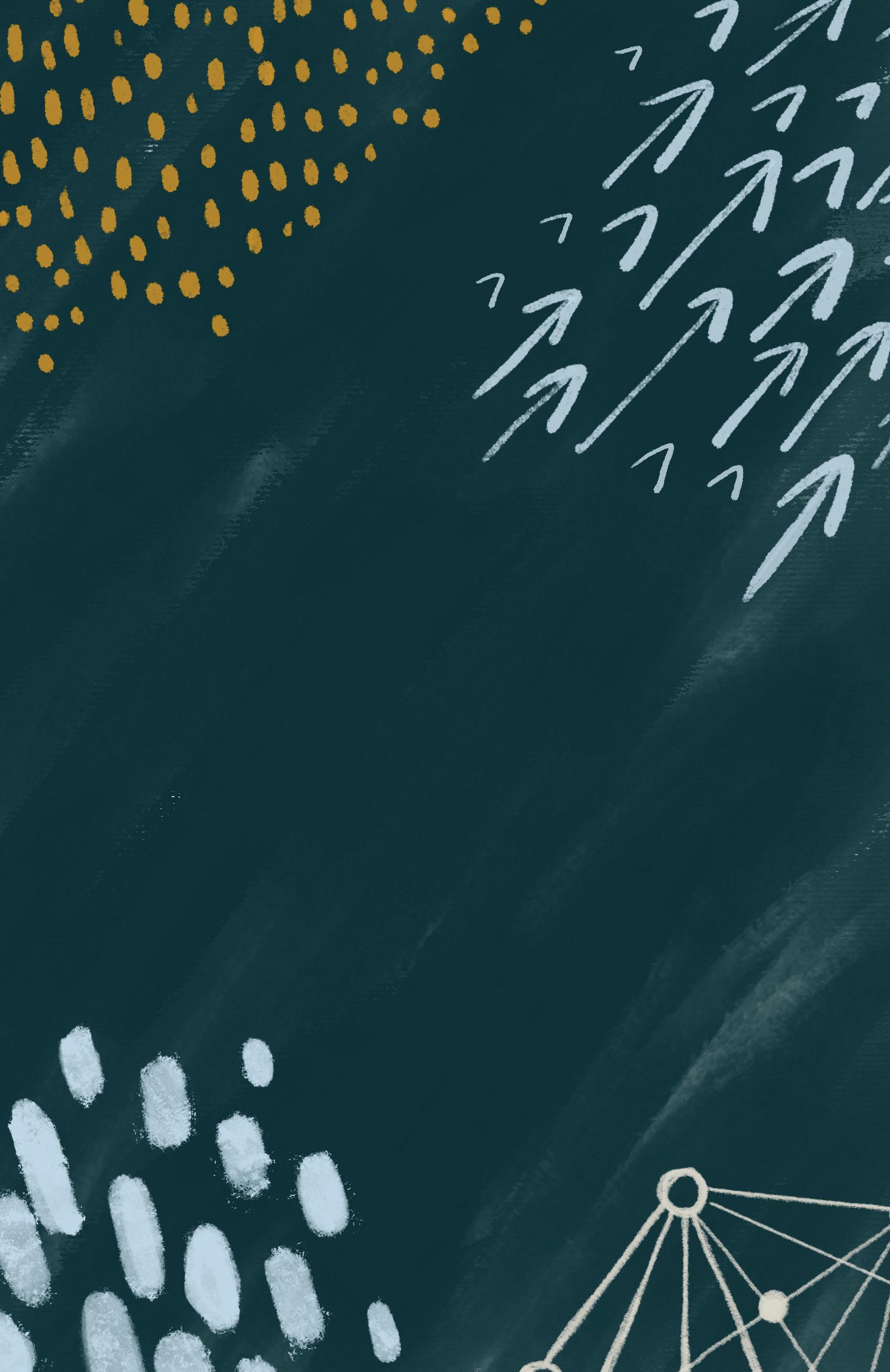


The
Transforming Women’s Entrepreneurial Experiences
Dedication:
In the Fall of 2021, our hearts were saddened by the passing of our friend John Kavanagh. John is remembered as an “entrepreneurial bureaucrat” – a dedicated public servant and huge supporter of economic development and growth. He was instrumental in establishing key entrepreneurial organizations across Nova Scotia and is also recognized as the “Father of Entrepreneurship” at the Nova Scotia Community College.
– Chuck Maillet, ACOA VP
Although this is a book about female entrepreneurship, this is also about the wider entrepreneurial community and progress towards women having equal footing in this arena. To this, there was no greater champion than John and so it is in that spirit we dedicate this book to him.
– Tanya Priske, CWB

The CWB Way: Transforming Women’s Entrepreneurial Experiences
© Centre For Women in Business 2022. All Rights Reserved.



The CWB acknowledges that we are in Mi’kma’ki, the ancestral and unceded territory of the Mi’kmaq People. This territory is covered by the “Treaties of Peace and Friendship” which Mi’kmaq and Wolastoqiyik (Maliseet) People first signed with the British Crown in 1725. The treaties did not deal with surrender of lands and resources but in fact recognized Mi’kmaq and Wolastoqiyik (Maliseet) title and established the rules for what was to be an ongoing relationship.
[Please note: when we say women, it includes all female-identifying people including but not limited to Two-Spirit, trans, nonbinary, and fluid genders.]



Table of Contents You belong here 5-7 Who are we and what is The CWB Way? 8-9 The 5 elements of the CWB Way 10-11 Elements of Success 1. Women-Centered Learning 12-29 2. Dedicated Centre for Women in Business 30-47 3. All-In Partnerships 48-59 4. Research, Results and Accountability 60-69 5. Advocacy and Outreach 70-80 Acknowledgments 87 here. YOU BELONG
Have a spark of an idea?
Run a business off the side of your kitchen table?
Own a store or a service with employees?
Feel ready to scale up and launch internationally?

Plan to gross your first million?

Want to support women business owners in your town, province, or country?
The CWB Way can help you not only reach your goals but transform the business ecosystem around you.

6. 7.
DO YOU... You are in the right place.
You belong here. No matter where you are on your journey.
The CWB's mission is for women to start any business they ever wanted in any industry, any business. No limits - no barriers. CWB will be your partner in overcoming them.
- Eleanor Beaton
Who are we and what is The CWB Way?
Since it began at Mount Saint Vincent University (MSVU) in 1992, the CWB has championed women business owners. In the past 30 years, we’ve worked with thousands of women entrepreneurs in Atlantic Canada. We’ve learned what it takes to build and grow a business - and how to create a world where women entrepreneurs thrive.
That world has equal access to capital, investment, and opportunities. It has greater health and prosperity for everyone.
It just makes sense - dollars and cents, in fact - to encourage women to pursue their business dreams and create an entrepreneurial ecosystem that supports them.
Consider this, Dr. Wendy Cukier of the Diversity Institute at Toronto Metropolitan University says:
38%

Close to of self-employed Canadians are women
.
If women were able to fully participate in the economy, they would contribute $150 million to Canada’s GDP by 2026.
In 2022, fewer than five per cent of corporate and government contracts are awarded to women owned businesses, according to the Women Business Enterprises Canada Council In 2022, fewer than five per cent of corporate and government contracts are awarded to women owned businesses
.

8. 9.
Just over 15% of small and medium-sized enterprises (SMEs) are owned by women
The 5 elements of the CWB Way

The CWB is on a mission to ensure every woman entrepreneur in Canada has the access, resources, and support she needs to build the business of her dreams.
We have created a pioneering methodology based on three decades of experience with thousands of women business owners. To succeed, women entrepreneurs need five crucial elements:
 Watch for these icons throughout the book to see how the CWB way impacts female business owners.
Watch for these icons throughout the book to see how the CWB way impacts female business owners.
Women-Centered Learning
We want you to succeed.
We’re entrepreneurs ourselves, so we get it: women need the right information, programs, and support at just the right time on their business journeys. That’s why we curate, facilitate, and connect women to the resources they need from startup to succession. Whether mid-growth, high-growth, a ‘solopreneur’ or a business with hundreds of employees, we create our programs with women entrepreneurs in mind.




12. 13.
Women are so good at sharing. The conversation around the table is not just about business but about emotional support. You find women you can depend on for a personal issue or a professional one.
- CWB Business Advisor
Just a few of the learning opportunities we’ve developed:
• RBC Alliance of Young Women Entrepreneurs for students at Mount Saint Vincent University
• Blueprint for Success - an introductory program for developing a business plan
• Business advisories - successful entrepreneurs will ask you the right questions to pinpoint your needs and move you forward
• Grow Now - a program for female tech founders
• Advanced Management & Mentorship Program (AMMP) - a six-month growth accelerator program with a cohort of other women entrepreneurs

• Greater Heights of Growth - to help you take your multimillion dollar business to the next level

We’ve found giving women a chance to practice what they’ve learned is most effective, so we walk alongside them as they implement new strategies.
After three months, six months, or a year with the right type of learning resources, our clients make huge strides. They innovate, transform, increase revenue, and impact people and communities through their businesses.

Yes, we have worksheets and guided programs to put together your business plan, do your market research, and create a path forward. Our knowledgeable staff and advisors will also guide you, but there is no top-down approach here.

Instead, we’ll help you draw on your skills and talents, and bring you into an expertly facilitated peer-to-peer community. We’ve created interactive, collaborative spaces where women make friends, tackle challenges, work with each other, and share referrals.
Trust us, you know more than you think you know. Let’s celebrate your skills and figure out how to achieve your vision.

14. Women Centered Learning 1.
Marie-Claire Chartrand






mediator and the owner of Greywave Senior Care Consulting.
“In 2014, I was thinking about starting a business and wanted to do the CWB’s Blueprint for Success planning program. The only thing I had experience in was my field. I had no experience in marketing or finance. But the questionnaire they gave me said don’t give up!



My website went live in 2016. I had a business card; I had my business registered and I was waiting for clients. In 2019, I incorporated, and I hired a lawyer who I found in the CWB’s directory of women-owned businesses. I also hired an accountant through the CWB directory. I took several courses through the CWB in financial management and one on presentation skills. They helped me to develop a presentation that I now take to the community - to churches, businesses, and larger employers. The CWB is all encompassing. I wouldn’t have a business without them.”

The CWB’s Blueprint for Success eight-week program guides and supports women through getting started in business and creating or updating their business plan. The program includes modules on developing an idea, market research, financial planning, marketing, and operations. During the program, participants meet a group of like-minded women who are at the same business stage; have one-on-one support from the CWB’s business advisor facilitators; and have weekly accountability from both facilitators and peer group members.
Marie Webb
is a fashion and textile designer. In 2021, Marie, who has Down syndrome, and her mother, Renée Forrestall, launched Necklings, an online business selling colourful accessories printed with designs made from Marie’s drawings. Her Lemonade Stand Design collection includes playful dresses and wearable art.
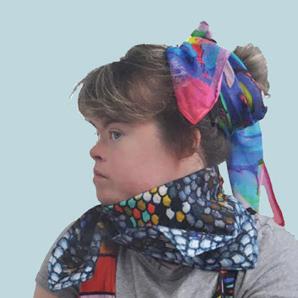

“ We met every Thursday morning for the Coffee Talk. It was wonderful. We liked connecting and hearing everyone’s stories and getting to know all the other women business owners in the community.
What really warmed my heart was that Marie could easily access the Coffee Talk on Zoom. There weren’t too many things that Marie could participate in during the pandemic. It was the social time that was the most helpful for us. It was the only real outside business contact that we had.”
16. Women Centered Learning 1.
Business Growth Mastermind




The 10-week program is designed for 10 women in business looking to work in an intimate and supportive environment with a focus on pushing them out of their comfort zone and growing their business. The program’s facilitator helps participants increase their business connections, learn from other growth-minded businesses, brainstorm or mastermind with business owners from different industries, and learn new skills and how to apply them. Participants bring their experiences and questions to the program as peer advisors. They also receive one-on-one consulting sessions as well as monthly follow-ups for six months after the course ends.

Kalie Wang
is a co-owner of Urban Grow Farms. She runs the Sydney-based family business with her husband, Daniil Titov, and his parents.




“ In 2021, I started the CWB’s Business Growth Mastermind program. I knew I needed to get serious about my microgreens-growing business. I needed to talk to other entrepreneurs. I knew at that point in my career I wanted to take my business to the next level; the CWB has coached me and provided me with so many resources.
I didn’t know the process of getting products into a grocery store. I spoke to the Mastermind group and they connected me with a CWB business advisor.

After working with the CWB, I feel more confident being an entrepreneur. Now I know what I want from my business.

I came to Canada in 2012 from China to study business. My husband came from Ukraine to study in Canada. We started our microgreens-growing business in 2019.”

Funmilayo Odeniyi
is an Afrocentric fashion designer and owner of MichNat Fashion.
“When we decided to leave Nigeria in 2016, I told my husband, “When we come to Canada, I will do what I love to do.” I’ve always loved fashion with a passion. In Nigeria, I was making clothes for myself and my family, but I worked for more than 10 years in the financial industry. I am trained as a chartered accountant. In 2018, after the birth of our fourth child, I went to the CWB and I met with the CWB’s business advisor for start-ups. She gave me advice and a list of people outside of Nova Scotia who were doing what I wanted to do.”
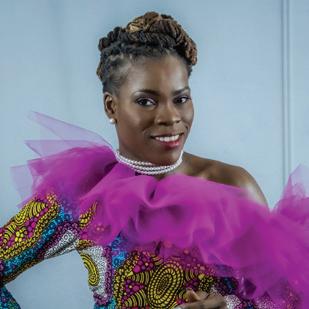
18. 19.
Hannah Chisholm
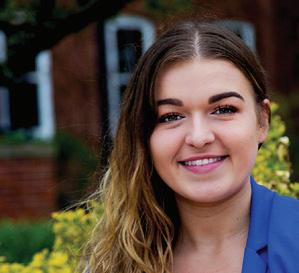
is the founder and CEO of Eggcitables, a plant-based, egg alternative product.

“Growing up in Antigonish there weren’t a lot of options for someone with food allergies. I was in university when I wondered why someone hadn’t developed an alternative for eggs for omelettes, scrambles, and quiches. So I developed the working recipe using chickpea flour myself. From the age of 11, I knew I wanted to be an entrepreneur, and I launched this product in 2018 at a farmer’s market.
COVID hit me and my business hard. In 2021, I really started to use the CWB as a resource when they put out a call for the Mastermind Program, a year-long program where female entrepreneurs across Nova Scotia get together and learn a lot about leadership development skills and wellness practices. That kickstarted my growth as an individual and getting back on track with Eggcitables. We just hit 85 retailers and we’re finalizing the process of getting listed with a distribution company, which is super critical. This will give us access to upwards of 300 more stores in Western Canada, Ontario, and Quebec.


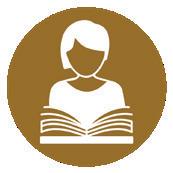



Meeting with other entrepreneurs, and the coach who led the Mastermind Program, was very insightful. I developed a lot more awareness regarding my behaviour, my productivity, and how I can make myself a better individual so I can be better for my business.
After getting active on TikTok, I’ve been getting a lot of requests from customers based in the United States. There are certain regulatory requirements for us to sell in the U.S. I didn’t know where to start. I reached out to the [CWB Advisor] and she got me in touch with several people in government who have been able to help me and provide resources. She’s a really knowledgeable person. If she doesn’t have the answer to my question, she can 100 per cent put me in touch with someone who does.”
The Atlantic Canadian Women in Growth Partnership is a project between the CWB, the Prince Edward Island Business Women’s Association, Women in Business New Brunswick, and the Newfoundland and Labrador Organization of Women Entrepreneurs. It is a three-year project funded by the Government of Canada under the Regional Economic Growth through Innovation - Women’s Entrepreneurship Strategy (WES) Eco-system Fund to address gaps and build capacity in the entrepreneurship ecosystem for women.
20. 21. Women Centered Learning 1.
The CWB offers several Certificate Training Programs in partnership with the Nova Scotia Department of Labour, Skills and Immigration. The individual certificate programs are 40 hours each and offer everything from content marketing essentials to financial essentials.










Corinne Boudreau
is the owner of Online Legal Essentials.
“I have been a lawyer since 2002 and started my own business in 2013. I wanted to do my own thing; I didn’t fit in these corporate environments. I started with a blank slate. I went through the CEED [Centre for Entrepreneurship Education and Development] program and got a membership with the CWB around 2013 and started my own law firm targeting entrepreneurs. I remember going to the CWB’s breakfasts and Power Lunches. I developed a network of other women entrepreneurs. We’re all trying to do something that is a little bit different. They are all so supportive of your business. It’s like having your own hype squad. They’re always happy when you have wins and when you are going through difficult times you feel there is someone you can lean on.
About five years ago, a CWB team member asked me if I could put together a legal course for them. I’m still doing it - a 10-week, 40-hour course for women to learn everything from contracts to hiring people to what steps to take if someone doesn’t pay you. Developing the course proved to be a great way to launch my business in a different direction, and now I mostly teach and sell legal templates online.”
Ann Divine
is the CEO of Ashanti Leadership and Professional Development Services and founder of the Black and Immigrant Women’s Network.
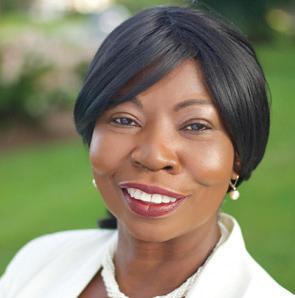
“I came to Canada as an immigrant without a job. My first connection with the Centre for Women in Business was when Daurene Lewis was the executive director. I took out a membership and started to attend events at the CWB, and 10 years later I was leading a lunch and learn session there!”
Power Lunch Series
Once a month, Power Lunch Leaders – who are also CWB members - share their expertise to help women develop their business skills. The Power Lunches focus on a variety of business topics, offer helpful takeaways, and answer pertinent questions.

22.
Agent Changeof
Daurene Lewis was the CWB’s executive director for several years. A nurse by profession, she was also an entrepreneur, a civic leader, and the first Black woman to be elected mayor in Canada. An agent of change, she is credited for moving the CWB forward and early on establishing diversity as one of its core values.
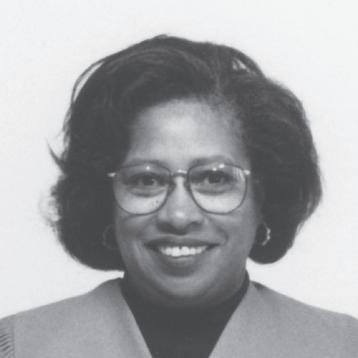
A seventh generation descendent of Black Loyalists who settled in Annapolis Royal in 1783, she was elected mayor of the town in 1984. For many years, Daurene owned a weaving and design business and also helped develop the Annapolis Royal Farmers and Traders Market, and the Historic Gardens.

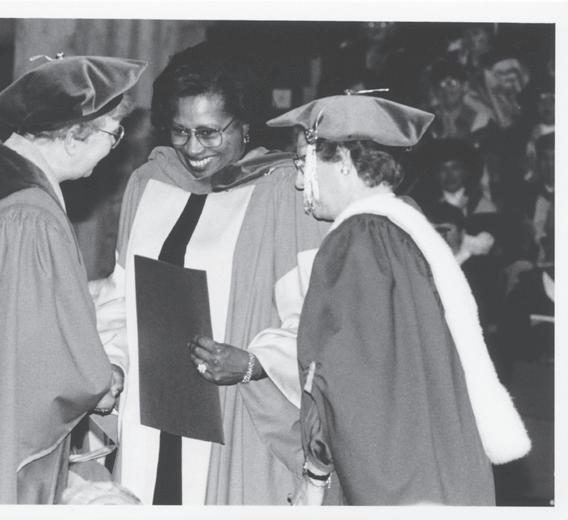
In 1993, she received an honorary degree from Mount Saint Vincent University (MSVU).
For her dedication to advancing women in business, bettering race relations, and promoting the arts, she was awarded the Order of Canada in 2002. She is one of 18 inspiring women featured on the atrium wall of MSVU’s McCain Centre. Daurene died in 2013.
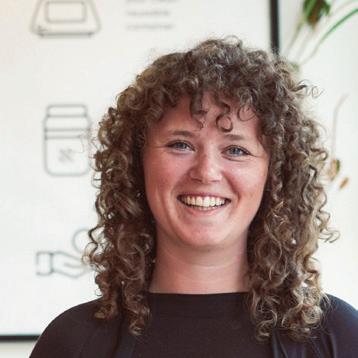

Kate Pepler
is the founder and owner of The Tare Shop, a package-free bulk store and cafe. When the business opened in 2018, it became the first of its kind in Halifax. Kate has since opened a second location across the harbour in Dartmouth.
A year before I launched my business, I started meeting with an advisor at the CWB. I did 10 advising sessions where I asked questions, had her look at different parts of my business plan, and give me feedback.
Finally, I decided to go through with it and I launched The Tare Shop in 2018.
After I became a member of the CWB, I took a course on legal essentials for small businesses. It was really useful. All the other people in the course had different kinds of businesses.
24. 25. Women Centered Learning 1.
Profile photo: Mirror Image Media
Some had been open for a while, others were like me and just starting up. I learned a ton. What I really took away from the course was to make sure to have thorough employee contracts in place.
I also took the Advanced Management and Mentorship Program (AMMP) last year. I liked the connections I made with other business owners, especially during that COVID year. We were all struggling and it was good to know you’re not in it alone. Being able to talk about your struggles as a business owner in a safe space is invaluable. Since then, I’ve done a couple of events with some of those business owners, and we still keep in touch.
The Tare Shop combines all of my passions – oceans, reducing plastic pollution, environmental education, and fostering community – into one community-based business.
The Advanced Management & Mentorship Program (AMMP) is a six-month growth accelerator program for women business owners who are committed to increasing their business volume, markets, revenues, and profits. Each cohort includes eight to 10 women from non-competing businesses who are focused on scaling their business, have generated a minimum of $100,000 in annual revenues, and have been in business two or more years.
More than 180 women in Nova Scotia have participated in the AMMP program, with 83 per cent of participants reporting a revenue increase between 15 and 17 per cent.
After graduating from Dalhousie University in 2016 with a BA in Sustainability, Environmental Science and a minor in Marine Biology, I was overwhelmed with the doom and gloom narrative of our Earth’s health and didn’t really know what I could do to make a difference.
and inspires me. Through that I found the Zero Waste movement and started trying to take steps to reduce my waste in Halifax. But it was really hard because there was nowhere that really made it accessible and possible. That’s what sparked the idea for The Tare Shop.


I started a website called Our Positive Planet and the mission behind that was to share environmental success stories, to inspire action. When I read about other people doing inspiring things, it motivates
To help spread awareness, and to meet current and potential future customers, I started doing pop-ups with lifestyle products. It served my business well to spend time educating people on what The Tare Shop would be. I started doing a lot of popups at Dalhousie University at the College of Sustainability where I graduated and some at Patagonia and Divert NS.
26. 27.
I thought "I’m not a businessperson. I didn’t go to business school. I don’t know what I’m doing.”
It proved to be a way to start making money. I purchased the inventory myself and then reinvested that back in the business. I also launched an e-commerce site as well before we opened the store to have a place for people to go to and learn.





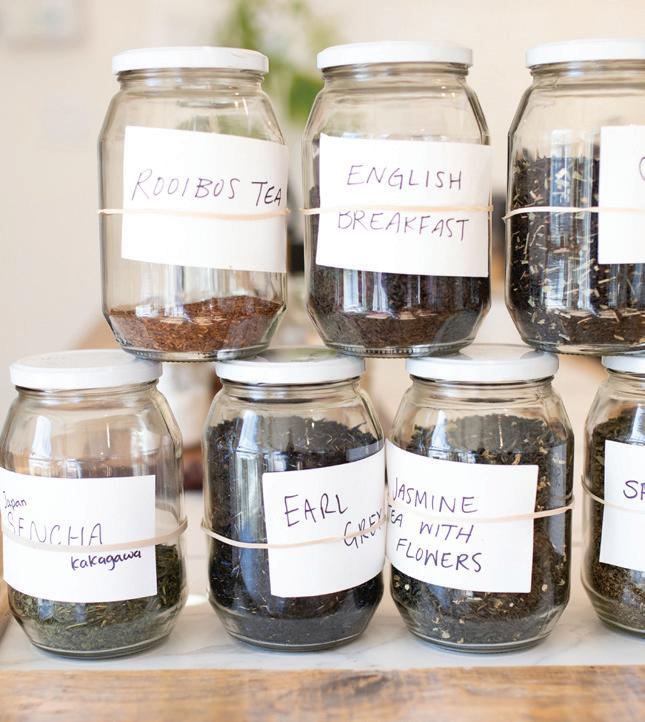
I got business loans through the Business Development Bank of Canada (BDC) and Futurpreneur for the first store and now I have more loans with BDC and CUA for the second store in Dartmouth. The CWB introduced me to people at both Futurpreneur and BDC. They were super helpful with the cash flow projections. I am horrible at math so they really helped to make sure that all my projections were realistic and thorough.

I measure success through The Tare Shop’s impact. I’d love to have more locations, in whatever form that would look like, because I know that our impact would be even bigger. Shopping here does matter, it really does make a difference.

28.
Dedicated Centre for Women in Business
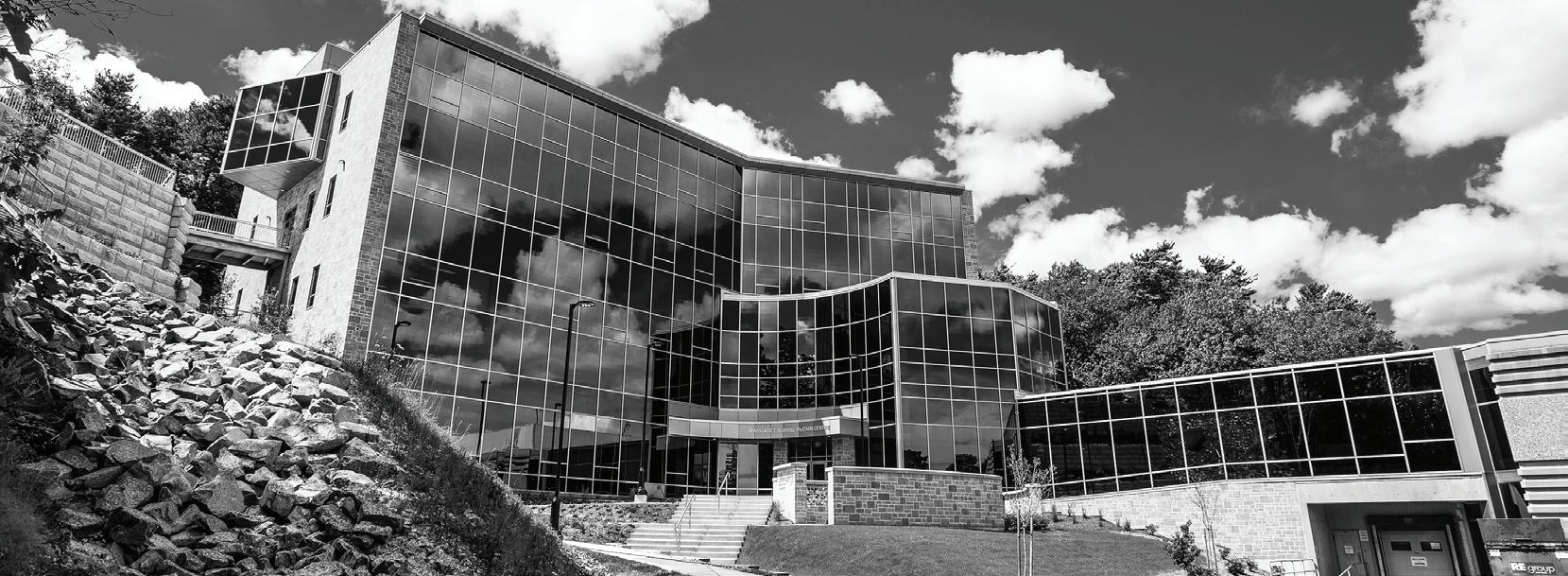
We know it’s important to have one driving force in a region that is the centre of excellence in women’s entrepreneurship. That’s us in Nova Scotia. We are the leaders and experts. We concentrate on our strengths, stay razor-focused, and, most importantly, put our clients’ needs first.
As entrepreneurs, we know it’s all about the value you bring to your customers, and that’s the question we constantly ask ourselves: What value can the CWB bring to women business owners?
Our Role
• We are a hub of knowledge and resources. We develop and deliver programs to support your business growth. We have a core understanding of how everything works in the business ecosystem - power dynamics, key players, partners, and opportunities - and can plug women entrepreneurs into that ecosystem and help them navigate it.
Our Funding
• 75 per cent of our funding comes from the federal government to provide services for women entrepreneurs.
• 25 per cent comes from our annual membership fees, corporate sponsorships and donations, program fees, and other revenue sources.
• We have a reserved seat at the table where power sits and can use that to champion women in business.


• We provide smooth administration and responsive communication to our clients.
– Dr. Sandi Findlay-Thompson is a professor in the Department of Business and Tourism at Mount Saint Vincent University.
We do a lot of research for the CWB. The research helps them keep on track.
30. 31.
2.
Our Community

• To us, community is a guiding principle and we strive to foster a collaborative, supportive environment where women entrepreneurs build connections and partnerships.


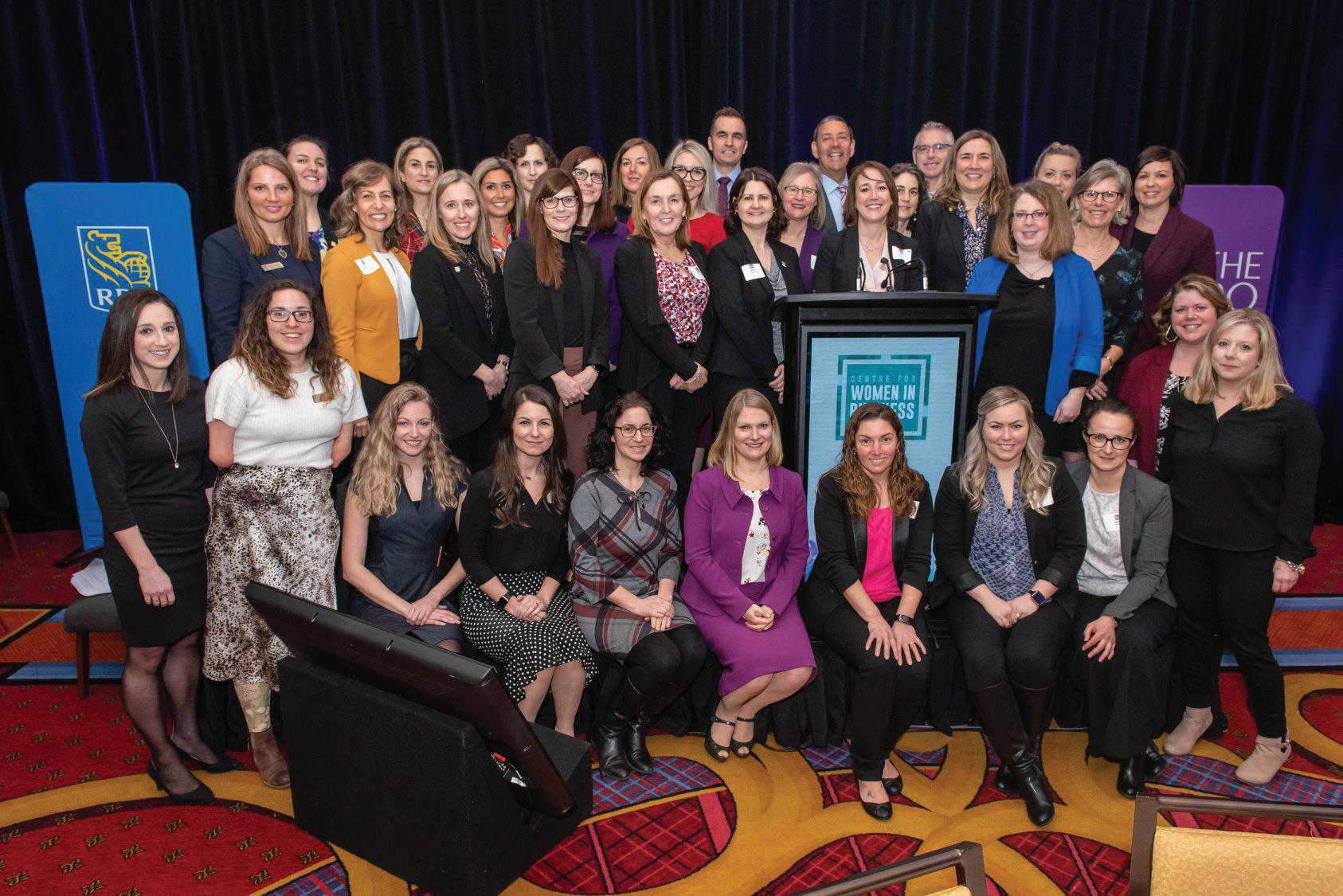
• Because of our funding model, we can offer support to women in business regardless of their ability to pay program fees or purchase annual memberships.
• The CWB uses corporate sponsorship and memberships to allow companies and clients to support other women directly and help the CWB maintain its exceptional level of service.
• We continually ask ourselves: What are the barriers to membership? This means working hard on inclusivity and diversity to ensure our clients see themselves reflected in our staff and programs, and that their needs are being met.
• We focus on a lifelong membership model that follows the member, not the individual business.
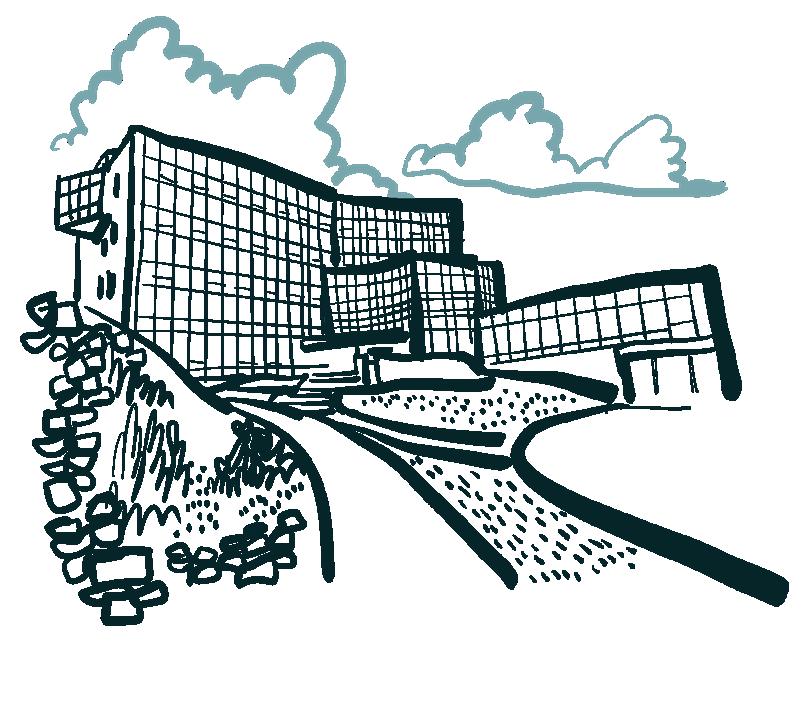
Our Location Universities are hubs of innovation, skills development, and information. They also bring credibility. This is why we are based at Mount Saint Vincent University in Halifax, N.S.

32. 2. Dedicated Centres for Women in Business
Thirty years ago a scant business plan launched the Centre for Women in Business. It had a very small budget and just one or two people. And from that grew this gem.
– Tanya Priske
Our Team
A dynamic centre is all about the right team. The CWB’s staff have entrepreneurship backgrounds so they know where women business owners are coming from. We understand women’s fears, challenges, barriers, and opportunities. We aim to be inclusive and diverse, which benefits our clients because we know you don’t feel welcome in a place if you don’t see yourself represented.
Our team has complementary core skills around connection, collaboration, facilitation, education, human resources management, administration, accounting, marketing. We have a range of business backgrounds from agri-food to hospitality to the automotive industry.

Women in business want a sense of belonging, a feeling of being connected. The CWB provides that. We have learned how to listen deeply to women to find out what hurdles they’re facing, what they want and need, and to make sure they get it.

34. 2. Dedicated Centres for Women in Business
35.
Over the 30 years they have become an all encompassing support provider to women business owners at any stage in their business life. I say it is one-stop shopping.
– Carly Campbell, retired economic development officer for the Atlantic Canada Opportunities Agency (ACOA)
Carly Campbell
, retired economic development officer for Atlantic Canada Opportunities Agency (ACOA).







“In the late 1980s and early 1990s, unemployment was high in the region, and the idea for ACOA was that if you can’t find a job, take ownership and see what you can do for yourself. In the early 1990s, women were in the service sector and it was an area that ACOA wasn’t serving. The agency was focusing on sectors like fisheries and natural resources. Then in 1992, the Centre for Women in Business started and really it is this all encompassing, inclusive set of expertise that wraps around a woman business owner.”
Stephanie Hovey
is a speech-language pathologist and founder of Allied Therapy, offering remote and home-based speech therapy, occupational therapy, applied behaviour analysis, and physiotherapy services across Nova Scotia.
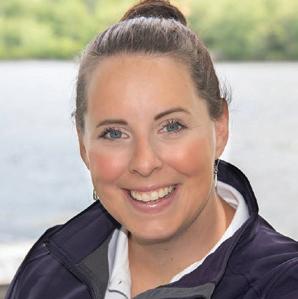

“Working with the CWB’s business advisor for start-up, I learned I needed to build a structure for my business. You need it so you can grow comfortably. My business doesn’t fit a mould. When I started Allied Therapy in 2019, I was doing something that wasn’t done in Nova Scotia.
I’ve used the CWB’s directory of women-owned businesses to build up support. I’ve built an all-women team around me. Everything from legal advice to creating my website. I’ve been meeting them regularly at the Coffee Talk. We need people we can lean on; we need people we can trust. I’m able to have a safe space at the CWB.”
Dr. Kes Morton
has a PhD
in marine ecology and is the founder of Pisces Research Project Management, a research and development project management company focused on ocean research.
“The Centre for Women in Business is the only place where I felt like I belonged. My relationship with the CWB is continuous. I think that is one of the CWB’s real strengths - they work with businesses at all ages and stages. That is unique in the entrepreneurial system.



We are the only company who does what we do in Canada and in the world. If you are doing things differently it is very difficult to fit into a box. Our business has grown shockingly. We now have 13 full-time employees. We’re looking to grow internationally. Our plan is to open a satellite office in Europe in 2025 in Ghent, Belgium where many research organizations set up.
It is the sad truth that there are still a lot of societal constructs that are deeply ingrained that make it different to be a womanidentifying business owner. You are engaging with society in different ways - society has different expectations for you. There is a lot of value in having an organization that accepts and responds to those different needs. I think there is a lot to be learned from the CWB.”
Business Advisories
The CWB’s team of business advisors support women at each stage of business from startup to high growth. Through oneon-one help, advisors answer questions on how to register a business, develop an export plan, and achieve growth targets.
36. 37. 2. Dedicated Centres for Women in Business
Rebecca Atkinson
is the owner of Sober Island Brewing Company in Sheet Harbour, N.S.
“When I have a major problem the CWB assists me in any way they can. They found funding for me to hire a consultant that would help me and, most recently, I wanted a financial analyst to help me figure out what my options were for the business. In March 2022, I decided to put my business up for sale. I talked to a CWB business advisor a lot about this. She helped me come up with all the numbers I needed: What were my assets worth? What was my business worth? Now, I’m looking at a partnership. Even if I sold my business I would still want to be involved with the CWB.”
Shelley Simpson is
the
CEO of Prism Lighting Group and co-founder of LED SGS Solutions Inc. She was executive director of the CWB from 2007 to 2011.











“The CWB is a resource that you can use when you need it. There is a focus on the lifecycle of the business. A big part of the growth phase is financing, cash flow management, and developing an investment portfolio. That’s not the expertise we maintain inhouse nor probably would any small or medium-sized businesses. They help us with their Consultant Advisory Program to tap into the expertise that we need to help us grow.”
Michelle AuCoin is
the
executive director and president of LearnAbility. Based in Sydney, N.S., the company provides one-on-one tutoring for children.


“I’ve always had a membership with the Centre for Women in Business. I’m constantly blown away by what they offer. When COVID hit, I went to the CWB to get information on the Digital Adoption Program. That’s what saved our lives in terms of going from an in-person business to an online business. We added our first student from Winnipeg and I said to my staff, this is incredible.
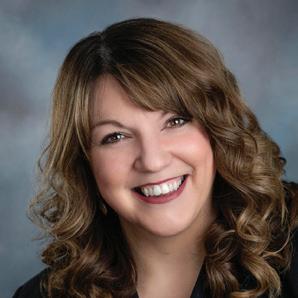
We’re out West - not in my wildest dreams would I think we would do this.
I started the Business Growth Mastermind Cape Breton cohort in 2021. It was far more than coaching and mentoring. She looks at your business, gets to know you and can hone in and say this is what I would recommend to you.
She’s very good in terms of systems. We’re 17 years in business. You get into your own system and you sometimes don’t realize what you could do better. She helped me streamline our enrolment process and helped me see where I should be focusing my time. She has really helped me believe that LearnAbility has greater potential than I thought we had. She has given me a lot of direction in terms of diversity, and in terms of expansion.”
38. 39. 2. Dedicated Centres for Women in Business
The CWB is not about exclusivity. It is about inclusion.
Sheila Nunn

was the co-owner of
East Coast Language College for more than 20 years. In 2021, she sold her business; it became a subsidiary of the Oxford International Education Group.
“About 15 years ago, I took an Advanced Management and Mentorship Program. We were just teachers and I thought it might be useful to acquire a few business skills. They got us to think about our business rather than just be a hamster on a wheel every day. A lady used to come to the CWB to talk to us. She was very inspirational. She would bring a ladder and she talked about going up the ladder to sit and look down at your business.
We went through a massive growth phase. We grew from about 70 students to 180 students. The CWB has been a constant in the growth of our business. At one point, one of our business partners wanted to leave so we bought her out. But the first call was to the CWB. “Help!”
In 2020, I went to the CWB to get help launching a program for continuing care assistants. The health care regulations around that program are very difficult. The CWB found me some funding so I could hire a consultant to get through those initial stages. We sold our business during COVID so that was a real success. We’ve gone through the whole lifecycle. The CWB has been there from start to finish.”

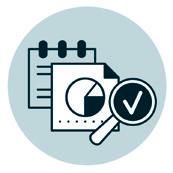









The Women Business Enterprises Canada Council (WBE Canada) certifies Canadian businesses that are at least 51 per cent owned and managed by women and connects them to corporate and government supply chains.
Patty Howard
is a trained chef and the owner and CEO of Kitchen Door Catering and Maritime Natural Food Co. She also co-founded Ritual Edibles, a cannabis edibles company with two other female entrepreneurs.
“Last week, I was at a supplier diversity conference hosted by the CWB. I learned a lot. At the event, I also met about 12 brands that are looking at us possibly distributing them through Maritime Natural Food Co. The event was a huge win from a network perspective.


Now I am going to get WBE certified through the Women Business Enterprises Canada Council (WBE Canada).
At the CWB supplier diversity conference, I was sitting at a round table with a woman from RBC. She said there are no caterers in Atlantic Canada on the list for diversification. Not one. Having the certification will open doors for Kitchen Door. Large companies like RBC, TD Bank, Wal-Mart, have corporate mandates to diversify their supply chains. I will have all three of my companies WBE certified which then opens up more opportunities.
I started Kitchen Door in 2008, the year my son was born. I remember my first year, I had a shoebox full of receipts. I was really busy, so I thought I was making money. My bookkeeper said, “No”! Now, there are three businesses under one roof in our new milliondollar, 11,000 square foot facility in Dartmouth, N.S. Right now, we’re also working with three small brands that are in startup mode and we’re going to co-pack or custom manufacture for them. We’re expanding our ability to co-pack other products as a revenue stream for Kitchen Door and then if it works and they want, we can distribute their products through Maritime Natural Food Co.”
40. 41. 2. Dedicated Centres for Women in Business
Doing Business with Big Business: Celebrating Growth
The CWB together with Supplier Diversity Alliance Canada offers networking events to bring together diverse suppliers looking to connect with corporate procurement teams. The events are designed to open supply chain access to diverse business owners, including women, Indigenous people, people of colour, LGBTQ+ individuals, and those with disabilities.
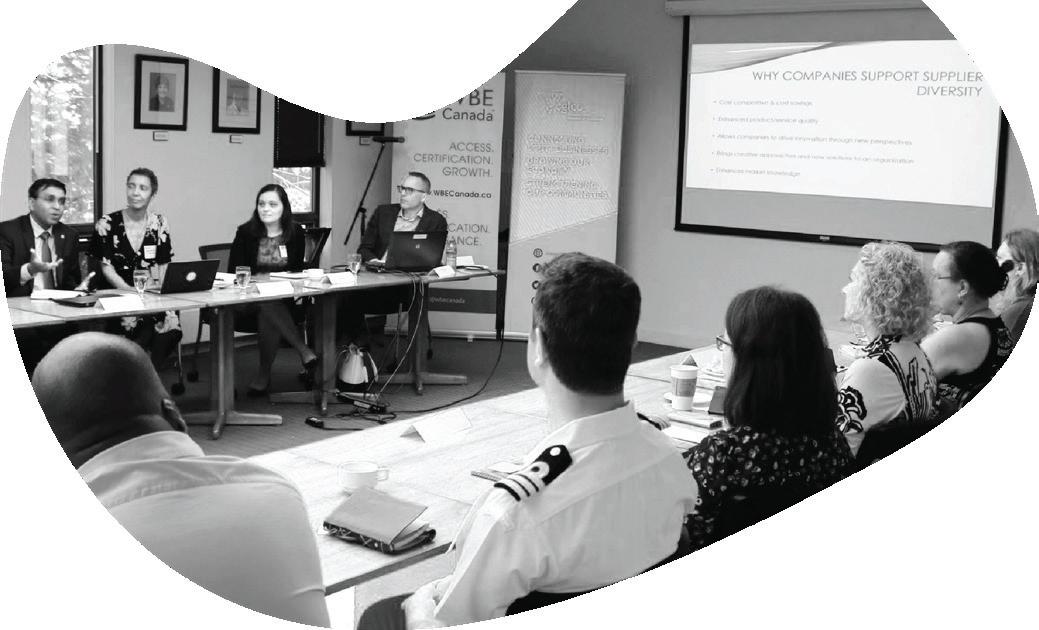
Faith Drinnan
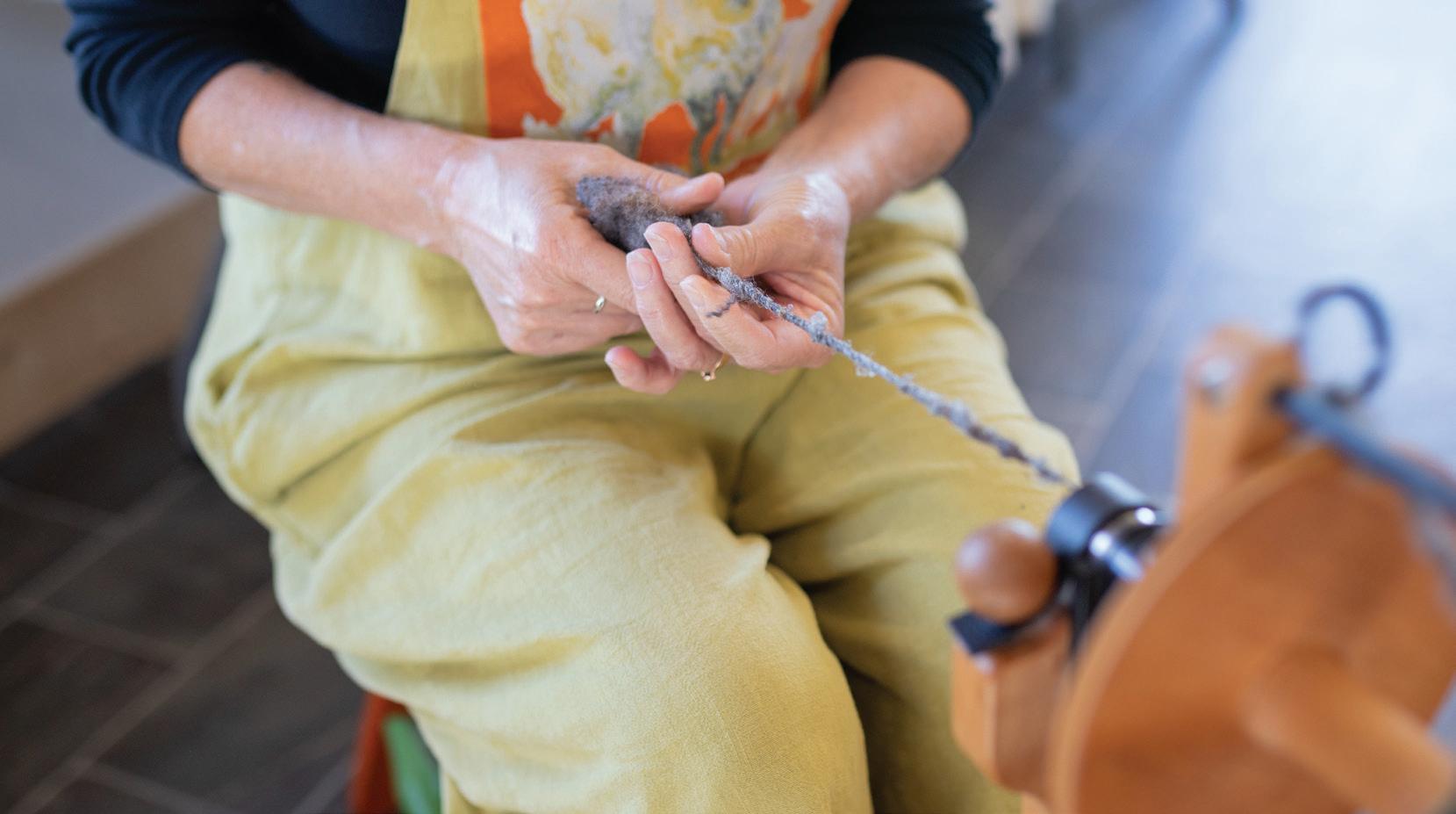
is the owner of Sisterhood Fibres. Her studio overlooks picturesque Tatamagouche Bay, N.S.
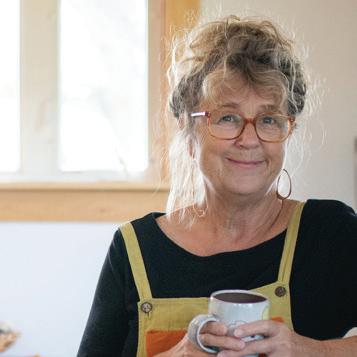


The CWB helped me take myself seriously as a business woman. They took me seriously so I took myself seriously. A lot of places I went - the banks and accounting firms - I always felt like they didn’t take me seriously. I felt they didn’t believe in me but at the CWB they did. I always felt like they saw the best in me. They helped me transform from being an entrepreneur to a small business owner.
Shannon Campbell



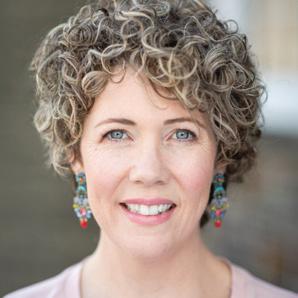
is a graphic designer and the owner of Pendulum Design Management and Ideation Studio.
“I took the CWB’s Blueprint for Success business planning program. I wanted to explore entrepreneurship. I had been working in marketing management in the non-profit sector for about 15 years. The program gave me all the resources I needed to launch my business.
I have a lot more variety as an entrepreneur. I also like the money. I make way more money now as an entrepreneur. I nearly doubled what I am making in my first year in my business.”
I started the Oyster Group in 1992 when I was 35. At first, I just worked out of my home. We offered circulation management and direct mail services to regional and specialty magazines in Canada and the United States. My business just took off. We had a ton of clients.
42.
2. Dedicated Centres for Women in Business
It was all really exciting. The internet came in and everything was changing. I was getting lots of awards and had one of the fastest growing companies in Atlantic Canada, but I was a mess. I went from being an entrepreneur to a business owner really quickly and the foundation wasn’t strong. I also had my two babies and my parents were older so after a few years I hit a brick wall. A financial institution told me I had to close the company. They wouldn’t lend me any money. That’s when I went to the CWB. They helped me. They said: let’s hook you up with a business consultant - let’s see if we can figure this out.


I worked with her for years. We got through that tough stage. I found my focus. Then the company got really strong and I worked with many different consultants through the CWB. They helped me export and we opened a branch office in Portland, Maine. When I signed the first client in the United States I called someone at the CWB. They celebrated my successes. Years ago, I took part in one of the first Advanced Management and Mentorship Programs offered by the CWB. It was to help you take your business to the next level. Several of the other women business owners in that group stayed together for years and had a mastermind group. It was an incredible help for my business. We would meet every couple of months. We would hold each other’s feet to the fire. Before we left a meeting people would ask: Faith, what are you going to get done by the next time we meet?
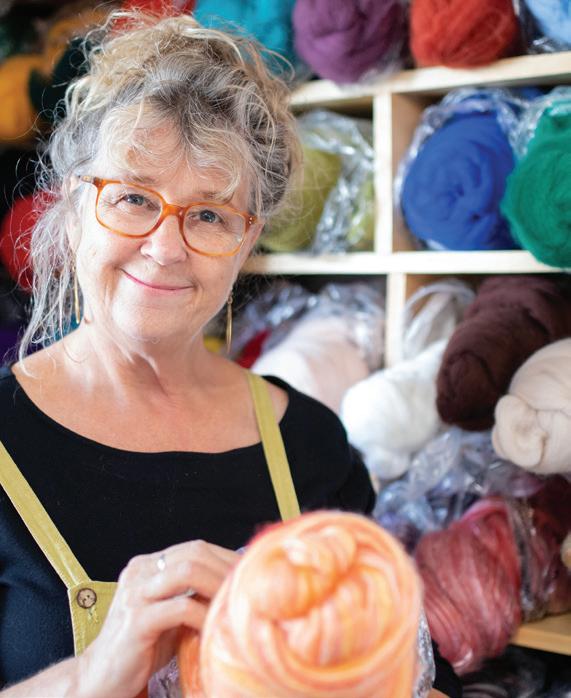
44. 2. Dedicated Centres for Women in Business
The Centre has always been on the leading edge. They always helped me stay in touch with whatever was coming up. During the pandemic, I took one of their online marketing courses to help me launch that part of Sisterhood Fibres.
I owned the Oyster Group for 25 years. But as it wore on, I was losing the thrill of owning it. I worked with the CWB to sell the company. We got a plan in place and in 2017, I sold it to Inovva.





I still knit every day, but my favourite thing now is seeing how fibre arts can change other people. They changed me. They taught me to slow down.
I started Sisterhood Fibres in the year of the Sheep - in 2015. I’ve been a knitter since I was five years old. My grandma taught me. All my life, I’ve knitted. I would go home at night after work and knit and rip it out and knit and rip it out. I’ve done some research and found that the Mayo Clinic and Harvard University have done tests that show that the fibre arts can bring down your blood pressure.
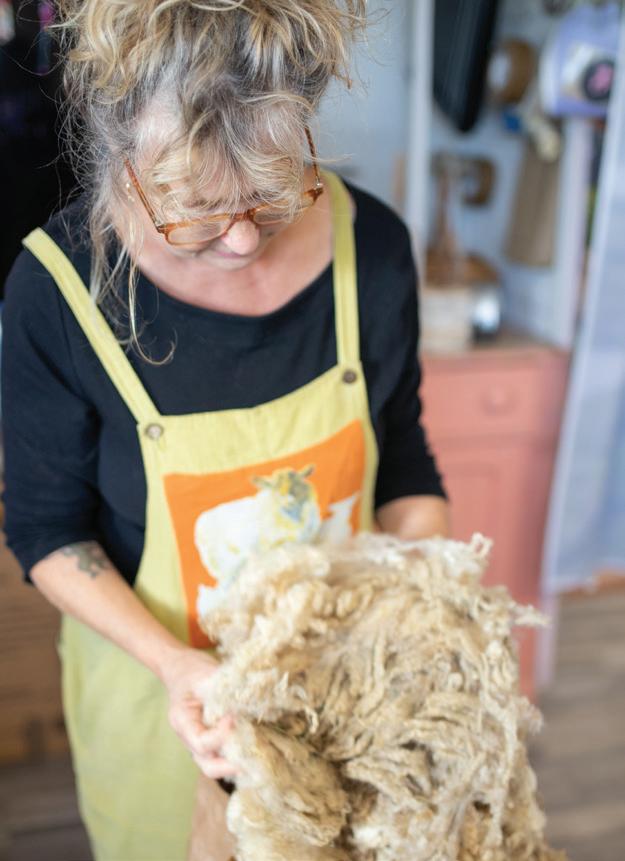
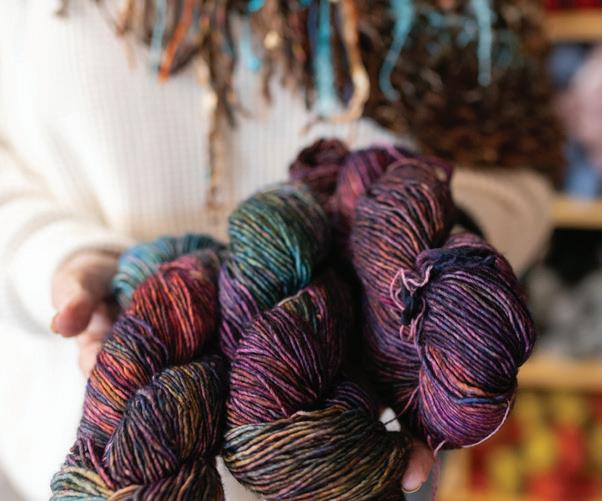
When I sat at the spinning wheel for the first time, I was in my 50s; it was like I had come home.
With Sisterhood Fibres I have a brick and mortar shop that offers a variety of knitting, spinning, weaving, and felting supplies but that’s not what brings in the money. What I love the most is events. I do a big fibre festival every year in Tatamagouche and this summer we have forty workshops going on.

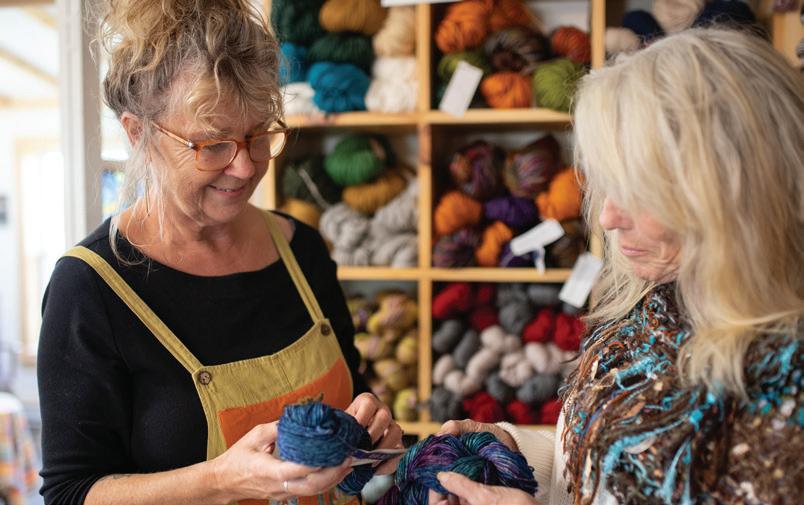
We also do sisterhood circles on the full moon every month. We get together to hang out and knit, crochet, spin or weave. I’m hoping with Sisterhood Fibres we provide a community. We’re all here to help each other. I am the happiest I have ever been. Now, I run this business the way I want. I run it authentically. I can wear overalls. I don’t have to wear makeup. I can just be myself. I don’t ever plan to retire. It is just too much fun and there are possibilities everywhere.
Through the CWB I met my tribe - all these other women that were like me. Of course they loved their children and their families but they were in love with their businesses too. I remember walking into the CWB for one of my first networking nights and I thought: “Oh my gosh, these women totally understand where I am coming from. I am not alone.”
Women need a place to go where they feel safe and heard and understood. It’s important for women to see other women being successful, to see that
women can have a family and also have a business and have a life. As they say the future is female. It is nice to work together and have that power together. We can make a difference.
46. 47. 2. Dedicated Centres for Women in Business
All-In Partnerships
For women to achieve their greatest business dreams, we as a Centre have to nurture the whole entrepreneurial ecosystem - not just the individual woman. That means staying plugged in to public, private, and non-profit sectors, and continually demonstrating how and why they should support women entrepreneurs.

Public: It is essential to have full buy-in from government partners. They fund the CWB’s core work as well as innovative pilot projects, and knowing the right person to talk to at a particular agency is key to successfully supporting women in business.

Private: Bringing corporate players to the table is critical. They support particular programs to build out the ecosystem, and they also can be important points of contact for our clients in terms of suppliers, customers, and investors. We continually build relationships so we know how our strategic goals for women in business align with their targets around social responsibility, diversity, equity and inclusion, and sustainability.
These are our equal partners in the ecosystem and it’s all about a reciprocal relationship. We are continually looking for opportunities to collaborate and share information so that all women in business benefit from our offerings, and what other
o serve women entrepreneurs, the CWB is always on the lookout for potential new partners, and ways to nurture existing

48. 49.
3.
When the pandemic hit, the CWB was able to respond quickly. When the Atlantic Canada Opportunities Agency (ACOA) said we need to get supports to business owners to allow them to pivot to keep functioning in a pandemic, the CWB was able to get $500,000 to women in about a month.


– Carly Campbell, retired economic development officer for Atlantic Canada Opportunities Agency (ACOA).
Rhona
Levine Ruben
is the director


of corporate sponsorship in Canada at the New York-based Women Presidents Organization (WPO).
“About 12 years ago, I went to the Centre for Women in Business and said I wanted the Women Presidents Organization coast to coast in Canada. I asked if they would help me develop a chapter in Atlantic Canada and they said “yes”. In no time we had a chapter in Halifax. Now we have four chapters total in Atlantic Canada - two in Newfoundland, and two in Nova Scotia that serve Nova Scotia, New Brunswick, and PEI. We have about 90 members in those chapters who run multi-million-dollar companies with anywhere from 20 to 800 employees.
The WPO has 20 chapters in Canada with 350 members who are driving a total of US$2.4 billion and are employing 15,000 people. Businesses ranging from architectural to manufacturing to construction.”
51. 3. All In Partnerships
Cindy O
’Driscoll
is the chief of stakeholder
engagement with Public Services and Procurement Canada in the Atlantic region.
“The CWB has been a great, long-standing partner. We’ve been working with them for more than a decade doing seminars and webinars and participating in all their events. Our partnerships with organizations like the CWB are really how we get out to the business community in a more intentional way. They facilitate those connections for service providers like us, with the business community, and are the reason for a lot of our success.
Our role is to help smaller businesses - particularly diverse ones - sell their products and services to the Government of Canada. The government buys paperclips to warships and everything in between, as well as professional services.”

Erinn Smith

is the executive director of the Nova Scotia Association of Community Business Development Corporations, providing business financing, training and advice to small businesses in rural Nova Scotia.
“We’ve been partners in the entrepreneurship ecosystem for the 30 years they’ve been around. e them as an important referral partner. They refer women to us to access these business loans and consulting services. And we refer women entrepreneurs to them. The idea is that we have a whole system of support to help out a business wherever they are in their journey.”
53. 3. All In Partnerships
Gina Gale
is the regional vice president Atlantic for the Business Development Bank of Canada (BDC).




“We have a real history of working together to support the growth of Nova Scotia entrepreneurs. Through our partnership with the CWB, the BDC ensures it’s reaching more women entrepreneurs. We provide access to BDC resources directly to CWB members.

There’s a lot of collaboration with the staff across both organizations, so we can get what women entrepreneurs really need. It’s the opportunity to celebrate women entrepreneurs in the community through professional development programs, sponsorships, and conferences.
Recently, the BDC sponsored CWB’s national Greater Heights of Growth program. This shows our confidence in the CWB’s ability to serve the needs of rapidly scaling women-owned businesses across the country.
The CWB wanted to learn more about what the needs of highgrowth women were. Many were asking to join AMMP which was designed for businesses under $1m. When the call for the Women’s Entrepreneurship Strategy Ecosystem fund came out, we wanted to invest in building a program for women with revenues over $1m - recognizing their needs were similar but different - more staff, more capital needed to expand, etc. The program targets women entrepreneurs with over $1 million in revenues.”


Amanee Mousavi

is the founder of Nouveau Realty and a shareholder of Cresco.
Because of my entrepreneurial spirit, I got involved with the CWB.
I was introduced to the CWB by a mentor of mine, who leads the Greater Heights of Growth Program. She suggested I take the Greater Heights of Growth Program. I started it last year but I wasn’t able to finish it because I went on maternity leave when my twin boys were born.
54. 55. 3. All In Partnerships
The program really helped me define strategy and develop leadership skills that I can use.
As a women business owner, I find it is always important to educate myself in order to carry the business forward.
though we are in different industries, we have things in common: being a woman leader and the challenges that presents and figuring out how to overcome those challenges.
Not only am I able to connect to women on a local level through the WPO, but I am able to connect with women who have companies all over the world.
I got involved in real estate following in my father’s footsteps.
A CWB team member is the Atlantic Canada chapter chair of the Women Presidents Organization (WPO), a non-profit group of women presidents of multi-million dollar companies.
I am part of the WPO Halifax chapter. We are a group of 10 women business owners. We meet every month for half a day at Mount Saint Vincent University. I like to call it a mini board of advisors because we sit together and talk about our business challenges. Even
My father, Hossein Mousavi immigrated to Canada in the 1980s from Iran. He met my mom who is from Cape Breton.
I like to say I have the best of both worlds. I understand the hardships that immigrants go through because of my father and because I am very involved in the Iranian Cultural Society.
My father worked very hard to purchase his first piece of land. He drove a taxi when he first arrived here in the 1980s. Through his determination and his vision, he developed a multi-million dollar real estate,
home building, and community development business called Cresco.
to ensure that the vision and mission of the company is carried through.
I not only work for Cresco, doing sales and marketing, I also represent the company’s secondgeneration shareholders. We are in the process of succession planning. Going forward, my role will be to ensure that the legacy my father built continues and

Cresco is my family business but I also wanted to launch something that is specifically for me. I am also a real estate agent with Royal LePage Atlantic and I just launched my own real estate group, Nouveau Realty.

56. 3. All In Partnerships
Because of my multi-cultural background it was really important for me to offer services to new immigrants. My niche market is working with newcomers. I love welcoming a family to Halifax. The city and the country have given so much to my father and to our family. It is nice to see other families come here and be able to make their way as well.
My goal is to grow my company to have representation from different cultures to cater to those who need someone to speak to in their homeland language.
When I got into the real estate business, I was 20 years old; I was a woman and I was young. It was hard for people to take me seriously in the competitive, maledominated construction industry.

I wanted people to take me seriously. I wanted to stand out. I’ve had to go above and beyond to prove myself as a woman leader. I went to Toronto, I went to Montreal, I took those extra courses. I’m always continuing my education and joining networking groups.
I speak English and Farsi. My husband speaks Arabic so I’m able to understand and communicate fairly well in that language. My team consists of an agent from China and my other partner is from Nigeria.
There is a gender bias but there is also a racial bias sometimes too. Yes, I am Canadian, but I do come from an immigrant background. But I don’t let it bother me at all because I am very confident in the services that I offer.
Greater Heights of Growth program


Targeting women entrepreneurs with annual revenues of more than $1 million, the program focuses on the practical strategies, processes, operating system efficiencies, and infrastructure components required to build a business.

Once a week, participants take part in a half-day virtual classroom, attend peer mastermind groups through video conferencing, and receive weekly one-on-one coaching sessions with the program lead. Participants leave the program with the skills to allow them to look at innovation and the connections between profits, cash flow, and productivity within their business. Participants examine international markets; understand how certification can leverage new business opportunities; and take part in 12 months of follow-up mentoring with the program facilitator and other women business owners from across Canada after completing the program.

• 100 per cent of participants created a new or improved business model and acquired the skills to implement this business model
• 100 per cent of participants have succeeded in sustaining and growing their revenue
58. 59. 3. All In Partnerships
Research, Results and Accountability
Research drives opportunity. It’s as simple as that.
The CWB’s offices are located in the business and tourism department of Mount Saint Vincent University, which puts us in the middle of a research-focused faculty invested in developing programs for women.
We also have outside researchers come to us to access the community we’ve created over the past 30 years. Our clients know we have their best interests at heart, so we can create reciprocal research partnerships that benefit the whole ecosystem.
This is true for the CWB internally as well: we do a lot of self inquiry because we want to make the greatest possible impact on women-owned businesses. We listen very carefully to women during business advisories and evaluate our programs often to understand our clients’ needs and ensure we’re effective.
During the pandemic we polled our clients and found 80 per cent were selling their products and services online but only 40 per cent felt confident in their ability to do so. We developed programs to support this need and improve their skills and confidence.
You measure what moves.
– Tanya Priske
To transform the ecosystem, we’ve learned a Centre for Women in Business needs to:
• Commission its own research;

• Drive research by other government bodies, organizations, and corporations;
• Act as a trusted liaison between researchers and women entrepreneurs;
• Track anecdotes and numbers - higher revenue and new hires, for example - to demonstrate results to funders and partners, and to see what we can tweak internally.

60. 61.
4.
Dr. Sandi FindlayThompson
is a professor in the Department of Business and Tourism at Mount Saint Vincent University (MSVU).
“We’ve done a lot of research for the CWB since it started. Every piece of research was done to help the CWB identify what was working and what wasn’t. The research was then taken and presented to the government to say: ‘Here is what we need’.

The CWB, together with myself and faculty and researchers from Mount Saint Vincent University, received funding from Women and Gender Equality Canada (WAGE) in September 2021. The purpose of the funding is to allow for a better understanding of the lived experiences of women and diverse women business owners in Nova Scotia during COVID-19 as it relates to their businesses. The study will follow the participants for a three-year period and is titled Pandemic Response: A Feminist Economic Recovery Plan for Women Business Owners in Nova Scotia. We’re really hopeful that the research will give the CWB huge contributions in determining where we go next.”
– Carly Campbell, retired economic development officer for Atlantic Canada Opportunities Agency.
Dr. Wendy Cukier
is a professor of
entrepreneurship and strategy, and founder of the Diversity Institute at Toronto Metropolitan University.
“With entrepreneurship we know that small and medium-sized businesses (SMEs) are the drivers of economic growth. In Canada, 90 per cent of jobs are with SMEs. If you are ignoring 50 per cent of the population, if you are setting up programs that are only going to encourage and support half the population in becoming entrepreneurs - you are missing an opportunity. We’re pushing hard to address some of the structural issues that tend to undervalue women’s entrepreneurship while at the same time pushing for more investments in programs and commitments to initiatives that are really tailored to women and will strengthen the ecosystem.”
62. 63. 4. Research, Results and Accountability
The CWB collects data on women business owners. With good data you can develop good programing.They really are policy leaders.
Danielle Goodfellow
is an industry

liaison officer in the Office of Innovation and Community Engagement located at Saint Mary’s University.
“The CWB’s business advisors can identify which women entrepreneurs would benefit from connecting with our office. We have also referred dozens of women entrepreneurs to the CWB to explore ways in which it can support their entrepreneurial journey. eOceans is one example of a CWB member that has worked with our office. eOceans has a software to speed up ocean science by collecting real-time data and making it accessible to all ocean scientists, explorers, and organizations.
Through Saint Mary’s University, the first iteration of the app was created. By collaborating with NSCAD University, eOceans was then able to have a design researcher improve the user experience of the app.”


Corrie Melanson
is a facilitator and designer of learning materials and the owner of Halifax-based Sea Change CoLab. Her company provides facilitation, training, and curriculum development services to government, First Nations, and non-profit organizations.
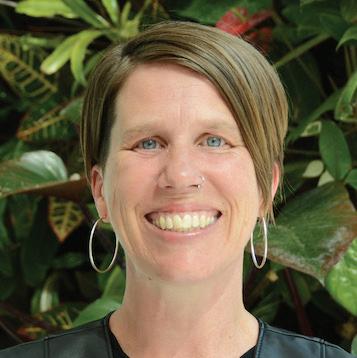
Corrie is also the co-founder of Rainbow Refugees Association of Nova Scotia, an organization that supports and privately sponsors LGBTQ+ refugees.
I have been connected with the Centre for Women in Business since 2015 when I started attending the in-person CWB networking breakfasts at Mount Saint Vincent University. But my biggest connection with the CWB came during COVID. Everything shifted and all the in-person work I had was cancelled. I said “Whoa! What can I do here? How can I get support?”
64. 65. 4. Research, Results and Accountability
Before March 2020, 100 per cent of my business was in person. I was ready to shift my focus when the pandemic hit. But I didn’t have the time or the money to invest in a shift. In 2017, when I developed my first online training for the province, I saw that there were additional opportunities to develop more online training. I knew then that I needed to do more online, but it felt overwhelming.
The CWB helped me access two grants through the Women in Business Implementation Fund [through their consulting advisory services.] They were about $5,000 each. With the grant money, I worked with Be Responsive Media to create a new website to relaunch a different set of services that I offered. I also hired someone to produce videos for me to use in promotion and on my website. Those were two key pivotal things for me to do at a
moment when I was ready to shift the focus of my business. Now my business is 90 to 95 per cent online. In the future, I expect 75 per cent of my business will be online and the other 25 per cent in person. Before COVID I was really limited to working in the Maritimes. The online shift has allowed me to reach across Canada. I have trained people across the country and beyond.
In addition to the grants through the Women in Business Implementation Fund, I also accessed funding from the Canada Emergency Business Account. The program offered interest-free loans of up to $60,000 to small businesses and not-forprofits during the pandemic, to invest in training and software. I set myself up to be online and an expert oriented business.

The Women in Business Implementation Fund directly supported more than 150 women-owned businesses to implement small-scale projects related to their business operations, business transformations, and recovery measures. The fund was supported by the Atlantic Canada Opportunities Agency.

66. 67. 4. Research,
Results and Accountability
In fall 2021, I accessed social media training that the CWB offered in partnership with the Nova Scotia Department of Labour, Skills and Immigration. It wasn’t just for me but one of my employees. In the last two years, with the growth of my business, I’ve been able to hire two full-time employees. Both of my new employees are from the Caribbean. My undergrad degree is in International Development so I’m really thinking about whether there are opportunities within the Caribbean market for me to expand and I’m participating in the CWB’s trade mission to Jamaica in September 2022.


68. 4. Research, Results and Accountability
5.

Advocacy and Outreach
An effective centre for women in business champions women in the halls of power and out in the community. It pushes for change, funding, and programs for women entrepreneurs. It reminds every level of government to look at issues using a gender lens, and ensures that women are at the table when decisions are being made - and that their voices are heard.
Government and corporate leaders come to the CWB looking for this. They ask us because we have built a solid foundation over the past 30 years based on trust, mutual benefit, and measurable impacts. When a question around the entrepreneurial ecosystem comes up, we are top of mind. When there is a round table on economic development, we are invited.
How has the CWB accomplished this?
• Communicating through traditional media, social media, programming and special events.

• Giving presentations to, and participating in discussions with organizations, elected officials, governments, and corporations so they understand what we do and how we can support their work.
• Writing issue-specific letters to decision makers outlining the concerns of women entrepreneurs.
• Tracking research and metrics to have critical information at our fingertips for advocacy.
Many business leaders, organizations and governments don’t work directly with women entrepreneurs on a day-to-day business. We do. They tell us what they need and we can translate that into action.
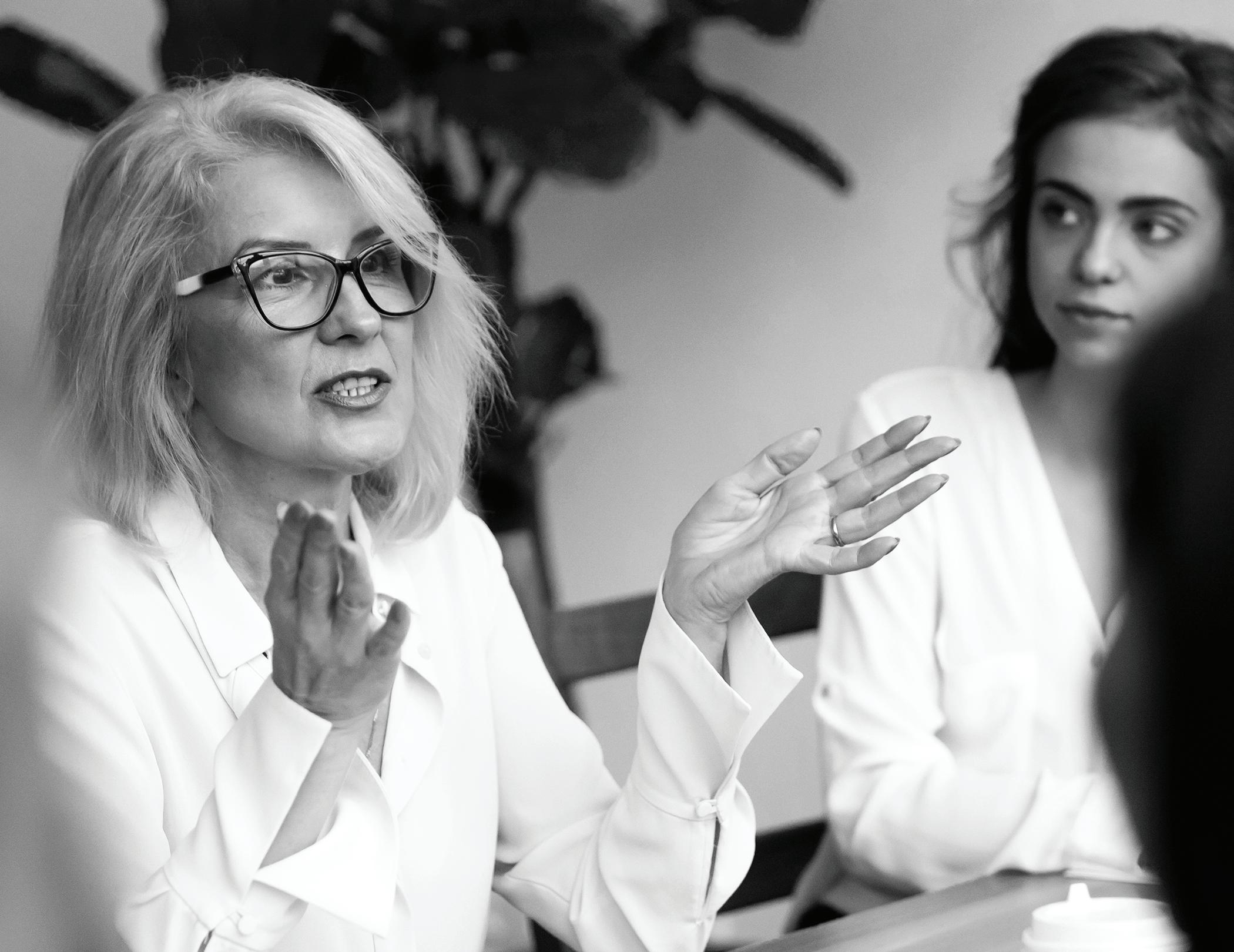
70.
Dr. Wendy Cukier
is a professor of entrepreneurship and strategy, and founder of the Diversity Institute at Toronto Metropolitan University. The Diversity Institute is leading the federal government’s Women Entrepreneurship Knowledge Hub, which tracks data on women in business and strengthens the women’s entrepreneurship and innovation ecosystem.


“We’re trying to encourage everyone in the ecosystem - financial institutions, government, development institutions like the Atlantic Canada Opportunities Agency - to re-think how they are defining entrepreneurship. We know if you define a women entrepreneur as a majority owner of a small or medium enterprise (SME) it is about 15 per cent of incorporated SMEs with employees or about 110,000 women in Canada. If you define a woman entrepreneur as someone who is self-employed, suddenly it is almost 40 per cent of self-employed Canadians and it’s a million women. There are a lot of programs that you currently can’t access unless you have an incorporated business.”

Ola Williams
I stumbled on the Centre for Women in Business. I saw they had Coffee Talk every Thursday morning. I joined and that first day I felt very included. I was noticed. I felt like my voice mattered so I kept joining every Thursday. They’ve done a beautiful thing instilling that confidence in me to believe in myself, and to put myself out there. I’ve made friends. It’s amazing.
– Ola Williams
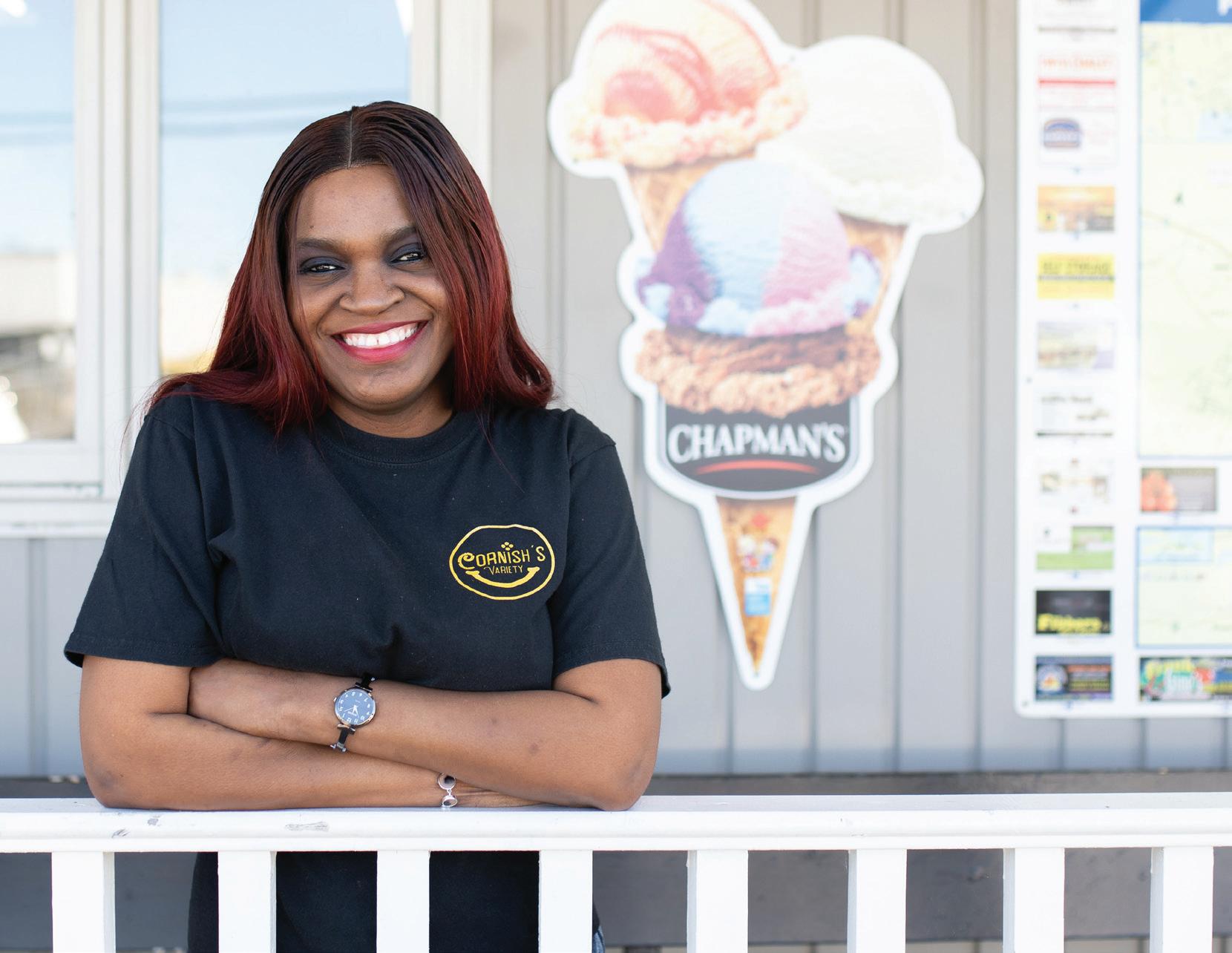
is the owner of Cornish’s Variety on Main Street in Trenton, N.S. Located just off the highway on the way to the beach, the convenience store and take-out restaurant has served the small community in Pictou County since 1916.
I saw the Centre for Women in Business had Coffee Talk every Thursday morning. I joined and that first day I felt very included. I was noticed. I felt like my voice mattered so I kept joining every Thursday. They’ve done a beautiful thing instilling that confidence in me to believe in myself, and to put myself out there and to believe that once I put myself out there I am going to attract the people that do matter to my business. That’s one thing I didn’t get in business school.
73. 5. Advocacy and Outreach
72.
Last International Women’s Day, we were encouraged to make videos. I’m glad I did. I even won $50 from RBC. Any time I watch the video, I am just proud of myself because before I joined the CWB I don’t think I would have even dreamt of doing that video. It has motivated me to do even more videos. The CWB has given my business more visibility on social media. I’ve made friends. It’s amazing. I always wanted to do business in the retail sector. My mom owned a supermarket and I used to help her in the store.
I bought Cornish’s Variety in October 2020 and soon after I moved to Nova Scotia from Nigeria with my husband and




our three children. The Cornish family trained me for a couple of months, but most of what I know on how to run a business comes from my mom, as well as business school, what I learned from the corporate world.
My background is in finance and accounting. I was a chartered accountant and then I was a financial controller of a multinational company in Laos, Nigeria. I had just finished my MBA through the Warwick Business School in England. I wanted to do business and do something different. The opportunity to own this store came at a time when I wanted to make a change. I saw the sale of the business online so I contacted the Cornish family.

I spoke with the Nova Scotia government. They told me about the Entrepreneur Stream that is dedicated to international entrepreneurs who wish to invest their money in the province. Let’s just say, everything worked out beautifully. The store is pretty much my life right now. If I’m not in the store I’m around town buying things for the store or talking to suppliers. I still often see shock on people’s faces when they realize I’m the owner of the store. It is still very much a male dominated world. They expect to see a white man and then they see a Black woman.



Coffee Talk
The one-hour, weekly online program is designed to connect women in business across Nova Scotia, to have peer conversations with like-minded entrepreneurs, to share experiences and knowledge and to learn from each other. Each session includes introductions and a facilitated discussion on recent news or trends in business. This program is available to all women at no cost thanks to the support of sponsor, TD Bank Group.
74. 5. Advocacy and Outreach
Eleanor Beaton
is thefounder
of Safi Media, a business coaching and advisory firm for women entrepreneurs. She’s also a podcast host, keynote speaker and women’s leadership development mentor.
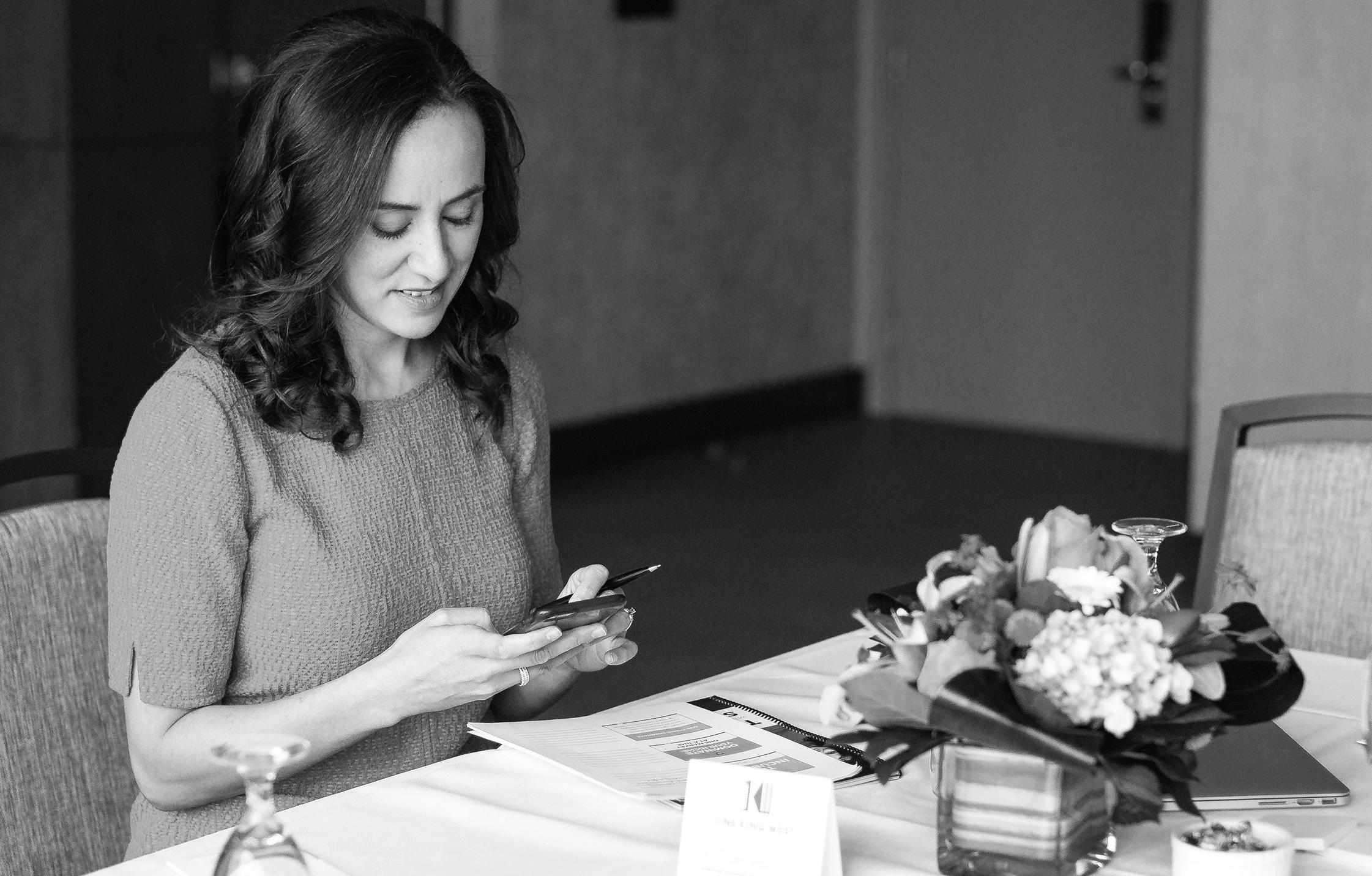

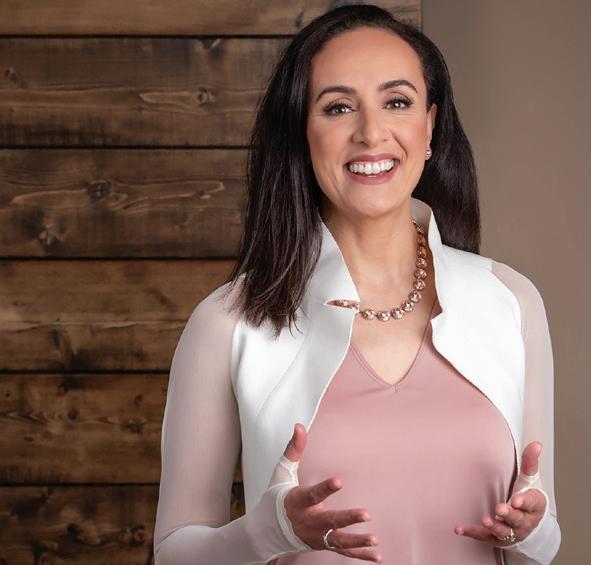
In 2011, my communications consulting business was growing but I felt a little stuck. The business had the capacity to grow but I wasn’t sure what I was missing.
I reached out to [a long-time CWB business advisor]. We had the first of multiple meetings. Every time I would feel stuck, I would meet with Gordia at some Tim Hortons in some small town in the Annapolis Valley. What I wanted was some sort of community, a place where I could talk about being in business. Where I didn’t feel so alone.
The CWB advisor took me seriously. I didn’t consider myself a business owner at that point. By feeling like I was taken seriously, that my problems and challenges and opportunities mattered, it was this professionalization of being a business owner. She suggested I apply to the CWB’s Advanced Management and Mentoring Program (AMMP) program. I did the program for two years. We had this fantastic cohort. It was really a sense of community. It was the place you could talk about getting sued or suing. We talked about the challenges. My kids were really young then. I was making the decision, getting the nerve and the vision to scale up my business. The AMMP program was a powerful container. Over a period of two years, I was able to really think through where I was going to take my business next: where’s the opportunity, what’s our zone of genius as a company? And ultimately I transitioned it into what it is today which is a coaching and education company. I knew I wanted to compete globally; I knew I wanted to build a bigger platform.
I left the AMMP program feeling really clear about what skills I needed and where I needed to go to get them.
Now, I have my own mastermind circles with women entrepreneurs from around the world. We have one of the top podcasts in North America for women entrepreneurs. I lead communities.
We’ve had close to 1,000 women go through our program and I have a team of eight employees. We’re on a mission to double the number of female entrepreneurs who earn more than $1 million in revenue by 2030. Our work compliments the work that the CWB does. It advances their mission and deepens the conversation around the unique needs of women founders.
76. 77.









5. Advocacy and Outreach
– Carly Campbell, retired economic development officer for Atlantic Canada Opportunities Agency.
A centre dedicated to the needs of women in business with a team made up of diverse backgrounds, knowledge and connections.



Curated women-centered learning for business owners wherever they are on their journey.
A community of trust, respect, collaboration, and belonging.
A focus on personal development alongside building business skills.
The ear of the decision makers and a seat at the table with powerbrokers.
An understanding of who is operating in the ecosystem.








Knowledge of partners, investors, and funders.
Ability to undertake research and measure growth.
81.
The full and equal participation of women in the economy is not just the right thing to do; it's the smart thing to do.
How do you know you’ve built an excellent women’s entrepreneurial ecosystem?
84. 85.
Acknowledgments

The CWB would like to thank the following organizations and individuals for their help in making this book possible: The Atlantic Canada Opportunities Agency, Mount Saint Vincent University, the CWB staff, Natalie Mike of Natty Noo Designs, Amy Holloway Photography, Danielle MetcalfeChenail and Allison Lawlor, all of the women who agreed to be profiled in the book, and all of those who weren’t included in these pages but remain the inspiration and driving force behind the past thirty years and the next.

86.

 © Centre For Women in Business 2022. All Rights Reserved.
© Centre For Women in Business 2022. All Rights Reserved.





















 Watch for these icons throughout the book to see how the CWB way impacts female business owners.
Watch for these icons throughout the book to see how the CWB way impacts female business owners.
















































































































 © Centre For Women in Business 2022. All Rights Reserved.
© Centre For Women in Business 2022. All Rights Reserved.